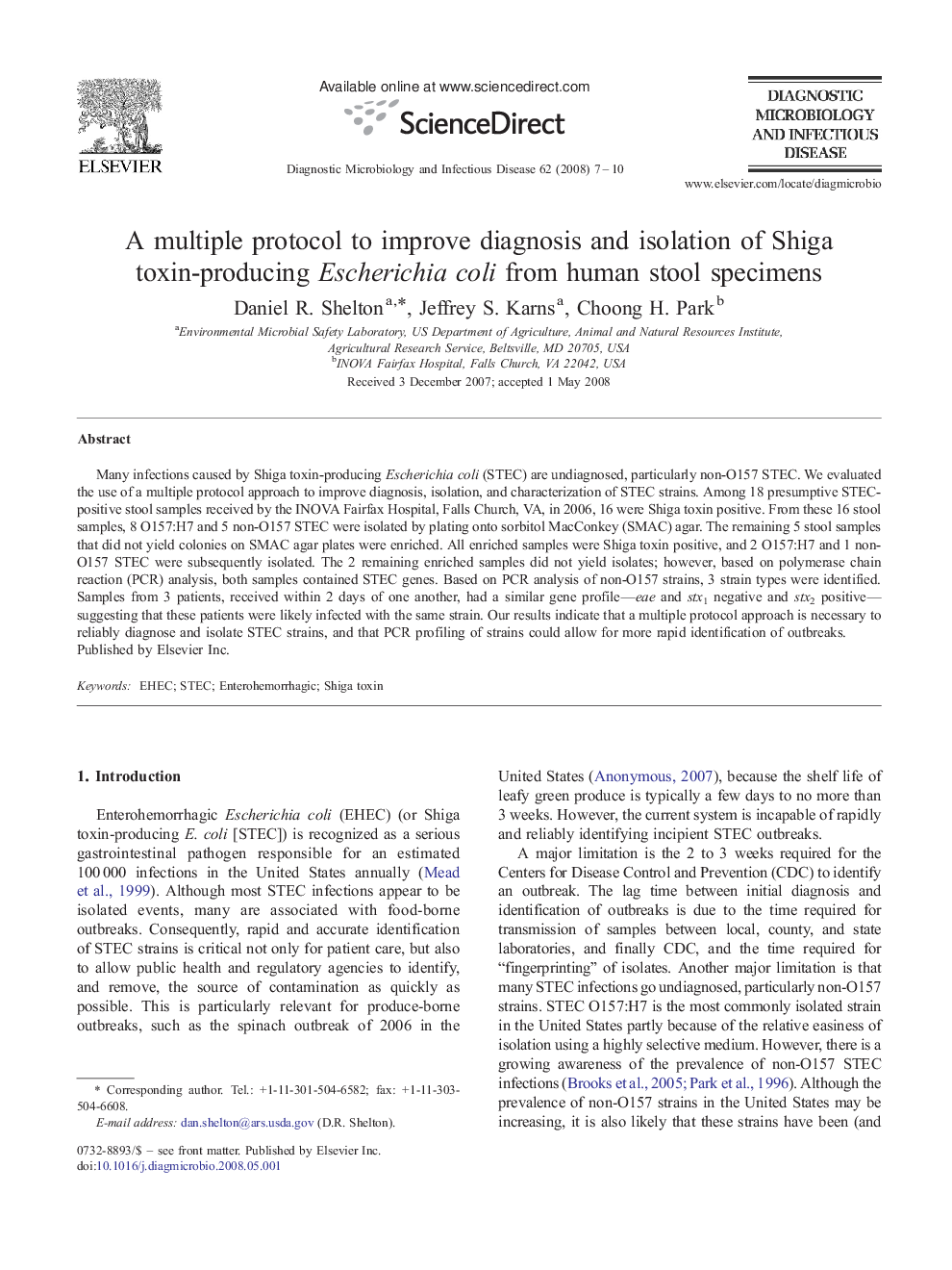| Article ID | Journal | Published Year | Pages | File Type |
|---|---|---|---|---|
| 3348533 | Diagnostic Microbiology and Infectious Disease | 2008 | 4 Pages |
Many infections caused by Shiga toxin-producing Escherichia coli (STEC) are undiagnosed, particularly non-O157 STEC. We evaluated the use of a multiple protocol approach to improve diagnosis, isolation, and characterization of STEC strains. Among 18 presumptive STEC-positive stool samples received by the INOVA Fairfax Hospital, Falls Church, VA, in 2006, 16 were Shiga toxin positive. From these 16 stool samples, 8 O157:H7 and 5 non-O157 STEC were isolated by plating onto sorbitol MacConkey (SMAC) agar. The remaining 5 stool samples that did not yield colonies on SMAC agar plates were enriched. All enriched samples were Shiga toxin positive, and 2 O157:H7 and 1 non-O157 STEC were subsequently isolated. The 2 remaining enriched samples did not yield isolates; however, based on polymerase chain reaction (PCR) analysis, both samples contained STEC genes. Based on PCR analysis of non-O157 strains, 3 strain types were identified. Samples from 3 patients, received within 2 days of one another, had a similar gene profile—eae and stx1 negative and stx2 positive—suggesting that these patients were likely infected with the same strain. Our results indicate that a multiple protocol approach is necessary to reliably diagnose and isolate STEC strains, and that PCR profiling of strains could allow for more rapid identification of outbreaks.
